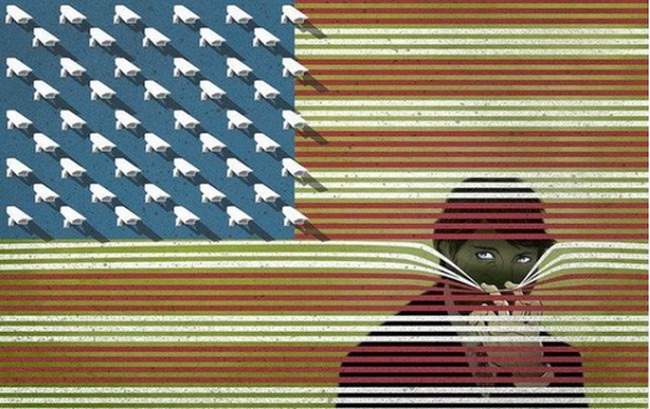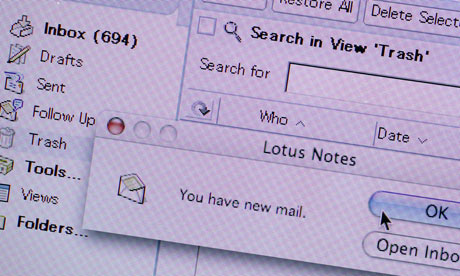
Another burst of sunlight permeated the National Security Agency's black box of domestic surveillance last week.
According to the New York Times, the NSA is searching the content of virtually every email that comes into or goes out of the United States without a warrant. To accomplish this astonishing invasion of Americans' privacy, the NSA reportedly is making a copy of nearly every international email. It then searches that cloned data, keeping all of the emails containing certain keywords and deleting the rest – all in a matter of seconds.
If you emailed a friend, family member or colleague overseas today (or if, from abroad, you emailed someone in the U.S.), chances are that the NSA made a copy of that email and searched it for suspicious information.
The NSA appears to believe this general monitoring of our electronic communications is justified because the entire process takes, in one official's words, "a small number of seconds." Translation: the NSA thinks it can intercept and then read Americans' emails so long as the intrusion is swift, efficient and silent.
That is not how the fourth amendment works.
Whether the NSA inspects and retains these messages for years, or only searches through them once before moving on, the invasion of Americans' privacy is real and immediate. There is no "five-second rule" for fourth amendment violations: the U.S. constitution does not excuse these bulk searches simply because they happen in the blink of an eye.
The government claims that this program is authorized by a surveillance statute passed in 2008 that allows the government to target foreigners for surveillance. Although the government has frequently defended that law as a necessary tool in gathering foreign intelligence, the government has repeatedly misled the public about the extent to which the statute implicates Americans' communications.
There should no longer be any doubt: the U.S. government has for years relied upon its authority to collect foreigners' communications as a useful cover for its sweeping surveillance of Americans' communications. The surveillance program revealed last week confirms that the interception of American communications under this law is neither "targeted" at foreigners (in any ordinary sense of that word) nor "inadvertent," as officials have repeatedly claimed.
Last week's revelations are a disturbing harbinger of future surveillance. Two months ago, this newspaper reported that the U.S. government has been forcing American telecommunications companies to turn over the call records of every one of their customers "on an ongoing daily basis", to allow the NSA to later search those records when it has a reason to do so. The government has since defended the program, in part on the theory that Americans' right to privacy is not implicated by the initial acquisition of their phone records, only by their later searching.
That legal theory is extraordinarily dangerous because it would allow the NSA to acquire virtually all digital information today simply because it might possibly become relevant tomorrow. The surveillance program revealed by the New York Times report goes one step further still. No longer is the government simply collecting information now so that the data is available to search, should a reasonable suspicion arise at some point in the future; the NSA is searching everything now – in real time and without suspicion – merely on the chance that it finds something of interest.
That principle of pre-emptive surveillance threatens to subvert the most basic protections of the fourth amendment, which generally prohibit the government from conducting suspicion-less fishing expeditions through our private affairs. If the government is correct that it can search our every communication in case we say or type something suspicious, there is little to prevent the NSA from converting the internet into a tool of pervasive surveillance.
Because of this very real possibility, these programs should be brought out of the twilight zone of the national security state and into the daylight, so that the public can decide for itself what privacy means in a digital age.
Originally published by The Guardian
3 WAYS TO SHOW YOUR SUPPORT
- Log in to post comments















